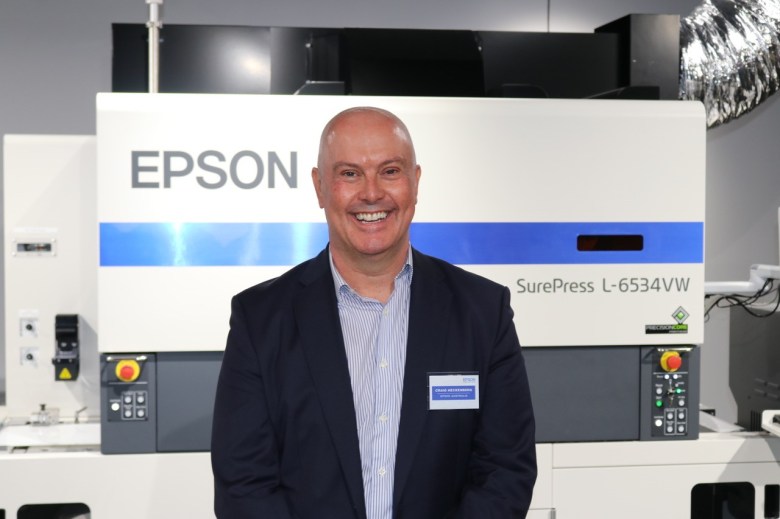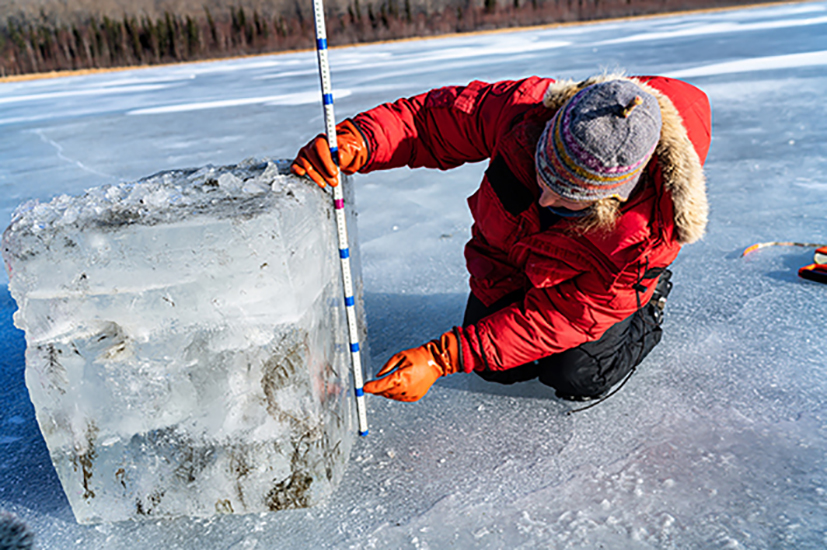
Epson Australia managing director Craig Heckenberg says new Epson research which shows a potentially damaging gap between climate reality and people’s understanding of its catastrophic effects is a wake-up call.
The Epson Climate Reality Barometer was released last week, on the same day which marks 50 days before the start of the 2021 United Nations Climate Change Conference, also known as COP26, in the UK in November.
The survey has captured global experiences and perceptions of climate change from over 15,000 consumers in Australia, Asia, Europe, North America and South America.
It was timed to help frame discussions at COP26. It is also hoped to be a tool to increase public awareness about climate change impacts, influence business decisions and better inform policy makers.
When questioned about their views on humanity’s ability to avert a climate crisis within their lifetimes, close to half of all respondents (46%) stated they were “very” or “somewhat” optimistic. This significantly outweighs just 27% who expressed that they were very or somewhat pessimistic.
The most popular reasons cited for this optimism were growing public awareness of climate change (32%), the ability of science and technology to provide solutions (28%) and the move towards renewable energies (19%).
It also comes after the Intergovernmental Panel on Climate Change (IPCC) recently reported that some human-driven climate change will take millennia to reverse.
Epson says the results which also follow a series of global events including the warmest July ever recorded, wildfires in Europe, North America and Asia, and floods in China, Columbia and Germany suggest a “triumph of optimism” over evidence and a damaging Climate Reality Deficit.
In Australia the top three events most associated with climate change are higher temperatures (74.9%), more wildfires (73.2%) and declining water supplies (70.2%).
The survey found many in Australia, nearly a third (31.7%), believed governments should be “most responsible” for tackling the climate emergency, and next are 11.7% who say business should – with one in 20 (4.9%) not believing in a climate change emergency.
But there was also evidence that showed the idea of personal and collective responsibility is widely held with 12.6% of Australian respondents saying they are personally “most responsible”, while just over a third (36%) believed that we are all responsible – with action incumbent on governments, businesses and individuals alike.
Epson Australia and New Zealand MD, Craig Heckenberg, said the results are a wake-up call for everyone to work together.
“This is a wake-up call for everyone – governments, businesses and individuals – to work together, make the right decisions and inspire the right actions moving forward,” Heckenberg said.
Heckenberg pointed to Epson’s Heat-Free technology as a way to help create a sustainble future.
“One way in which Epson is helping to create a sustainable future for all of us is through our patented Heat-Free technology which uses up to 94% less energy when compared to an equivalent laser printer or copier,” he said.
“Heat-Free technology is already helping industries around the world move towards a more sustainable future and Epson is confident, with the support of our customers, that we can achieve the same result when it comes to printing.”
Epson says companies can empower other businesses and consumers with sustainability supporting innovations.

As well as the use of highly energy efficient Heat-Free printing technology, Epson also has made significant R&D investment into environmental technologies such as naturally derived (non-plastic) materials.
The company says beyond product and materials innovation, businesses can make a big difference by promoting and demonstrating climate responsibility.
Epson carries this forward by transitioning to 100% renewable electricity and engaging with initiatives such as the RE100 renewable energy project; working to close the resource loop for example, by promoting product refurbishment and reuse; and engaging in high impact partnerships such as its work with National Geographic to promote protecting permafrost through the Turn Down the Heat Campaign.
Yasunori Ogawa, global president of Epson, commented: “The discovery of the Climate Reality Deficit shows that awareness coupled with action, will be critical to tackling the emergency. Epson’s goal is to bring this awareness and the technologies needed – by our company, other businesses and consumers – to action transformational change. Sustainability is central to our business plan and backed by significant resources – because while we know there is a long way to go, we believe we can build a better future.”
Comment below to have your say on this story.
If you have a news story or tip-off, get in touch at editorial@sprinter.com.au.
Sign up to the Sprinter newsletter
